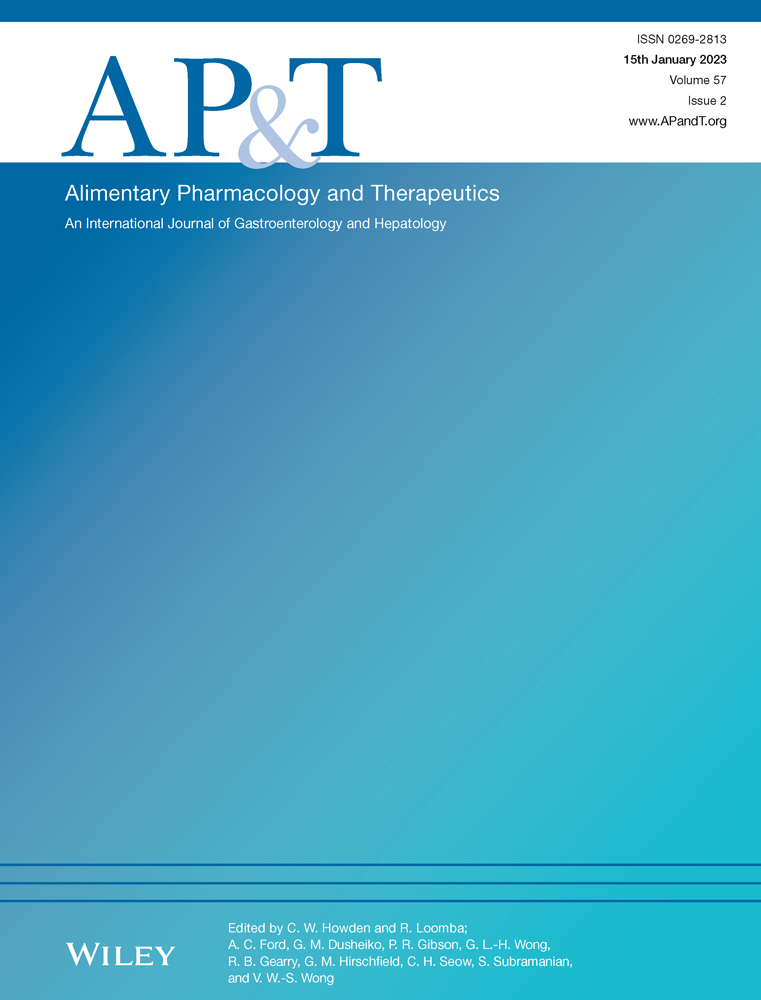Editorial: changes of health-related quality of life associated with liver disease severity and its improvement after treatment in NAFLD
LINKED CONTENT
This article is linked to Yilmaz et al papers. To view these articles, visit https://doi.org/10.1111/apt.17301 and https://doi.org/10.1111/apt.17325
Non-alcoholic fatty liver disease (NAFLD) is one of the most common chronic liver diseases worldwide. It leads to liver-related morbidity and mortality and also contributes to impairment of health-related quality of life (HRQoL) and patient-reported outcomes (PRO).1, 2 In comparison with the general population, patients with chronic liver diseases including NAFLD have decreased HRQoL scores.1, 2 The HRQoL score in patients with NAFLD might be higher than that in patients with chronic hepatitis C.1, 2 A real-world study from a tertiary care clinic in Turkey found that HRQoL and PRO were more severely impaired in patients with NAFLD than in those with chronic hepatitis B (CHB).3 Underlying cardiometabolic comorbidities such as obesity, type 2 diabetes, cardiovascular disease or obstructive sleep apnoea might aggravate the impaired HRQoL in patients with NAFLD4 who experience a heavy burden of impaired HRQoL. The decreased HRQoL score was demonstrated mainly in the domains of inability to perform daily tasks, fatigue, daytime sleepiness and psychiatric disorders. Lower PRO scores were independently related to younger age, female sex, type 2 diabetes, obesity, fatigue and other comorbidities.4
The degree of impairment of HRQoL is correlated with disease progression of NAFLD.3-6 Non-alcoholic steatohepatitis (NASH) is considered the driver of disease progression and incident liver cancer and cirrhosis. Patients with NASH have lower PRO scores than patients with simple hepatic steatosis.5 Among patients with NASH, those with cirrhosis have lower HRQoL score than those without.6 Advanced liver fibrosis is the key determinant for long-term outcomes in patients with NAFLD and NASH. Yilmaz et al reported that advanced liver fibrosis identified by non-invasive tests was associated with lower PRO scores.3 Therefore, there is a need to evaluate the impairment of PRO and its relationship with the severity of NAFLD.
Currently, multiple drugs are in development for the treatment of NASH and improvement of HRQoL.7-10 Hepatic fat reduction, NASH remission, and NAFLD activity score decline were correlated with improved PRO scores after resmetirom or obeticholic acid therapy.7, 8 Additionally, patients with histologic fibrosis regression experienced improvement of PRO after treatment with selonsertib, firsocostat or cilofexor.9 Consistently, patients with NASH who have histologic and non-invasive advanced liver fibrosis were at increased risk of impaired PRO at baseline, and treatment with simtuzumab and selonsertib not only decreased non-invasive fibrosis scores but also improved PRO.10
In summary, the burden of impaired HRQoL in patients with NAFLD might be heavier than in those with CHB, and is closely associated with liver disease severity. The evaluation and monitoring of HRQoL and PRO in NAFLD should be encouraged. Management of NAFLD is needed to improve PRO and quality of life. PRO should be regarded as one of the important endpoints for future clinical trials in fibrotic NASH.
AUTHOR CONTRIBUTIONS
Chao Sun: Writing – original draft (equal); writing – review and editing (equal). Jian-Gao Fan: Supervision (lead); writing – original draft (equal); writing – review and editing (equal).
ACKNOWLEDGEMENT
Declaration of personal interests: JGF of individual has served as a speaker, a consultant and an advisory for Sanofi, Abbott, EchoSens, Novartis, Hisky, Gilead, Allergan, Terns and MADAUS GMBH. These entities had no role in analysis, decision to publish or preparation of the manuscript.




